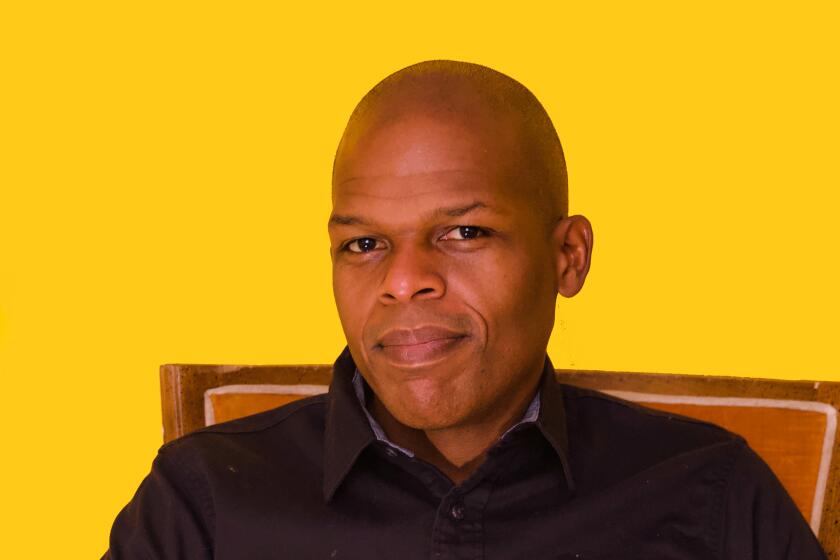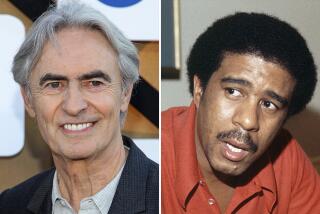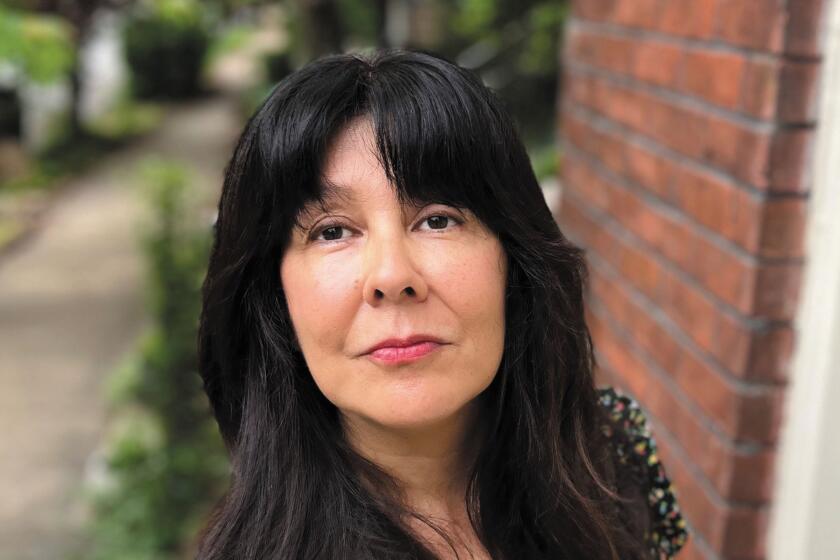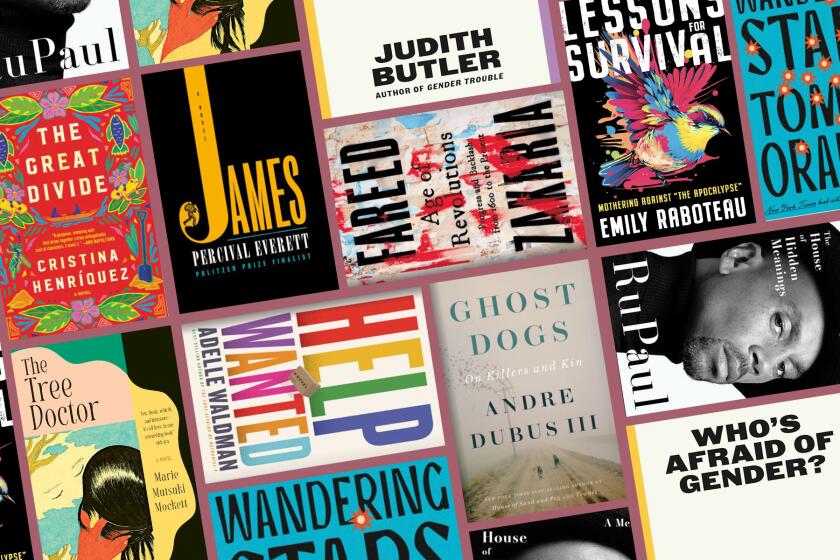A critic has some thoughts on our judgy culture. Feel free to disagree

Book Review
No Judgment: Essays
By Lauren Oyler
HarperOne: 288 pages, $28.99
If you buy books linked on our site, The Times may earn a commission from Bookshop.org, whose fees support independent bookstores.
Let’s get one thing out of the way: I am extremely, ridiculously sensitive to other people’s judgment, largely because, as the cliché has it, I’m my own harshest critic, and thus magnify anyone else’s criticism to a preposterous degree and use it to prove that my brutal self-evaluation is not only correct but possibly not severe enough. Am I practicing true, sincere “vulnerability” by admitting this? Or am I performing, knowing that in at least some circles there is social capital to be gained through confession? Lauren Oyler, cultural critic and novelist, might say that in sharing this self-knowledge, I’m taking part in our current era’s focus on “the controlled release of intimate details.”
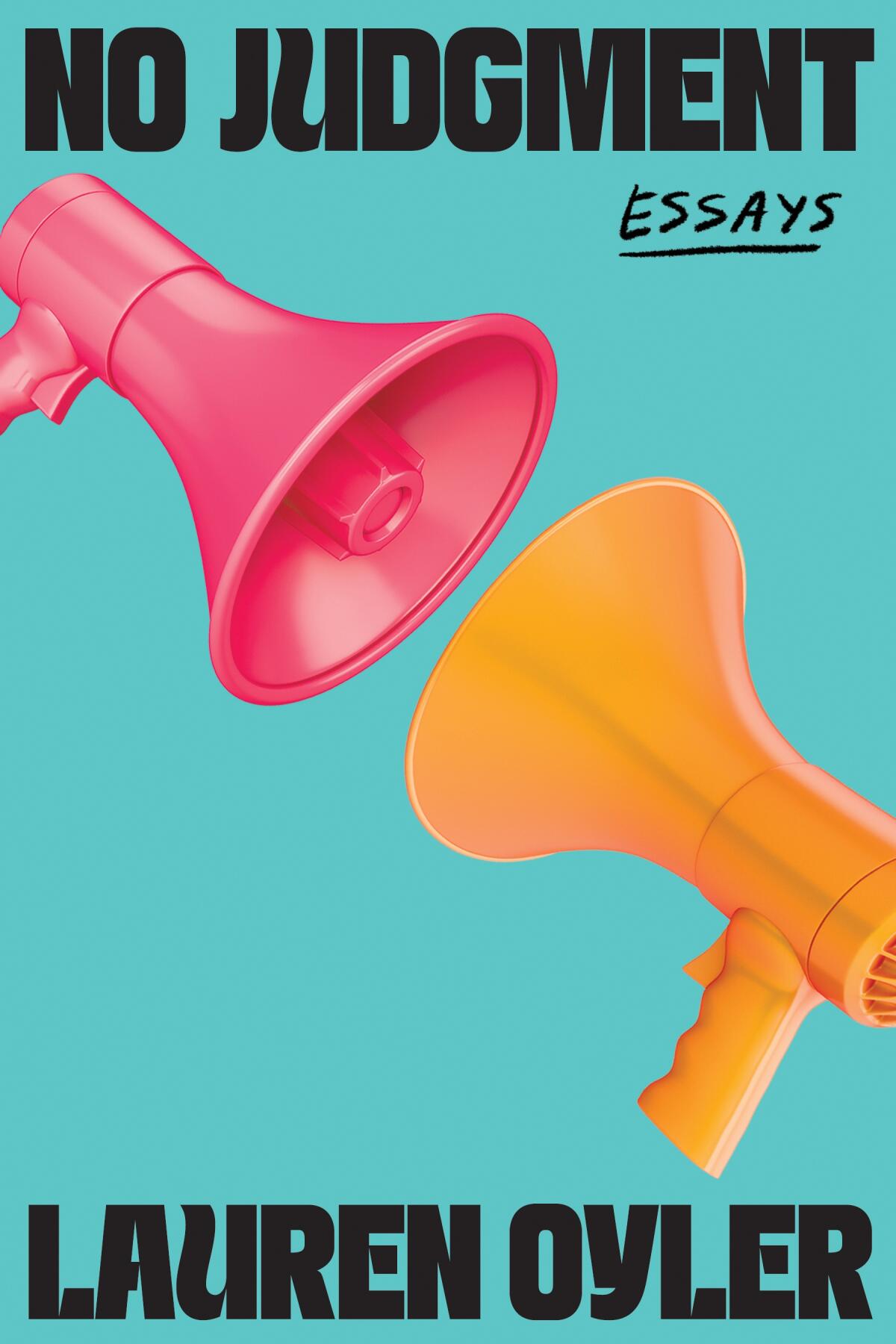
I’m especially nervous about being judged by Oyler because she was the first serious editor I worked with as a baby book critic writing for Vice Media’s Broadly a decade or so ago. I looked up to her then and obviously still want her approval. But I’m an adult who has reckoned with the fact that feelings are, as Oyler writes, “not always rational.” I know that “deciding what to do with judgment is a more productive line of inquiry than worrying about what other people think.”
Are utopias becoming a trend in fiction during this dystopian era? The debut novel from Phillip B. Williams, ‘Ours,’ embraces magic without ignoring reality.
Because I’m sometimes ornery and contrary, my instinct is not so much to argue with Oyler’s new book, “No Judgment” — with which I often agree — but to attempt to write with the kind of self-aware subjectivity that she dislikes: “I think descriptions of criticism that highlight its subjective nature are defensive maneuvers that allow critics to avoid the consequences of being wrong.”
Would Oyler hate this piece about her book? I can assume, because of the particular dispositions I described above, that I have been, am or will be among the judged — and now I can move on to more interesting thoughts.
The writer’s ambitious approach to the historical novel uses techniques reminiscent of “The Handmaid’s Tale” to examine the shifting meaning of freedom.
There’s really no alternative anyway, Oyler writes; there’s no such thing as “no judgment” because to judge others — to evaluate their behaviors, compare them to our own, learn from them how to be or not to be, etc. — is human. “If we did not judge,” Oyler writes in the book’s fifth essay, “The Power of Vulnerability,” “we could not survive. What’s important is if and how we express that judgment. What we mean when we say ‘no judgment’ is not that we aren’t judging, but that we aren’t holding our judgment against you.” Here’s hoping!
The project of “No Judgment” as a whole is to explore what it means to care about criticism, in its various definitions, especially, as Merriam-Webster has it, “the act of criticizing usually unfavorably” and “the art of evaluating or analyzing works of art or literature.” Oyler’s essays cover gossip (private and public), the proliferation of forums like Goodreads that invite consumers to judge art via star ratings, living in Berlin (and the criticism implied when people question why she or any other expat lives there), autofiction (which — a rarity! — she actually defines), the rise (and commodification) of the notion of positive vulnerability, and her own anxiety (as well as the difficulty presented by labels and the fetishization of therapy).
Somewhat oddly, Oyler shares in her introduction that an additional theme — revenge, “or its easier-going synonym justice” — runs through the book, although whether it’s simply not clear enough or whether I was too annoyed at the collapse of the terms “revenge” and “justice” (from a writer who cares about semantics, no less!) to want to see it, I cannot say.
Unsurprisingly, given my own occasional (and often swiftly deleted) online rants about the book-tracking and reader-experience-centered Amazon-owned social media site Goodreads, I was especially taken by Oyler’s second essay, “My Perfect Opinions.” This essay is about many things: the origins of the star-rating system (fascinatingly, the work of an exclamation-point-wielding Englishwoman); the novelist and critic Adam Dalva’s journey toward becoming an influential Goodreads user; the assumed (often incorrectly or incompletely) power dynamics between internet commentator and minor internet “celebrity” (i.e., someone with lots of followers); the rise of pop culture supremacy and the reduction of what might be considered “highbrow” art to mere snobbery and elitism; professional critics and the existential threats to our livelihood; and more.
I underlined many parts of this essay enthusiastically, such as where Oyler compares the power of actual celebrities, the kind who make tons of money, and the power of cultural critics who dare to poorly review those celebs’ work, and where she writes, “On some level, Goodreads uses a façade of community and wholesome book-loving to sell stuff, on behalf of an entity that specifically harms actual communities and actually wholesome book lovers.” But on looking through these pages again, I also found quite a lot of “huh” and “um?” and “eh?” in my marginalia.
Although I’m revealing my inane approach to sidebar commentary (embarrassing, for a critic, to have so many hearts, asterisks and question marks there rather than erudite, or at least articulate, sentences; I do actually have the latter but they rarely prove as useful as the shorthand), this holds true for much of “No Judgment”: My excited underlined passages or comments of “haha” and “omg so true” and “okay, fair” balanced out with many an annoyed “uh no” or “oookay.”
Oyler’s liberal usage of the royal “we” at various points in her essays (or, worse, the weirdly accusatory “you” she occasionally switches to) is grating, especially as she is clearly excellent at writing from her own particular perspective and is capable of admitting to the subjectivity of an “I” statement. There are moments when she is vague in her arguments or abstracts to the point of confusion, but her writing is so good that it’s easy to gloss over these. I wasn’t entirely convinced by her cynical reading of an infamous online list of ill-behaved men in the media industry, for example. Elsewhere, although Oyler claims to have “elaborate rules about gossip,” these aren’t laid out coherently.
Later in the book, she tells readers that the “critic praising vulnerability is only hurting himself: it’s his job to judge, and the cliché of vulnerability forestalls all judgment. And anyway, critics have decided that it is no longer a risk to be sincere, soft, banal. It is completely safe.” Have we? And why does sincerity and softness presume banality?
Finally, I’m aware that I’m among the prime audience “No Judgment” is aimed at: a very online millennial versed in social media’s literary dramas and discourses. But being squarely in the book’s target audience means I can also see how easily parts of “No Judgment” might lose readers who aren’t familiar with contemporary online culture or don’t recognize where the dynamics of said culture have trickled into everyday offline life. This isn’t necessarily a problem — not all books are for all readers, and that’s fine — but it does explain why some critics might, subjectively, find “No Judgment” to be too niche.
Ultimately, though, I found Oyler’s work invigorating. That I was at times deeply convinced by her arguments and at others wanted to argue right back is, to me, the mark of successful critical writing. Reading the book made me want to talk about it, to press it into friends’ hands so I can ask them, “What did you think?” when they finish it. An essay collection that invites discussion, dissection, questions and even counterargument is doing its job well because it makes us think.
“For my money,” Oyler writes, “there are few things more fulfilling than encountering a difficult text, film, or work of art and then spending some time thinking about it, discussing it, and uncovering the meaning in it.” I couldn’t agree more, and was pleased to find in “No Judgment” just such a text.
Ilana Masad is a books and culture critic and author of “All My Mother’s Lovers.”
More to Read
A cure for the common opinion
Get thought-provoking perspectives with our weekly newsletter.
You may occasionally receive promotional content from the Los Angeles Times.

